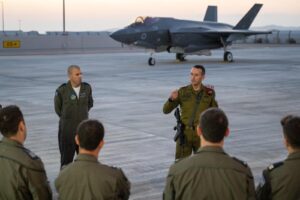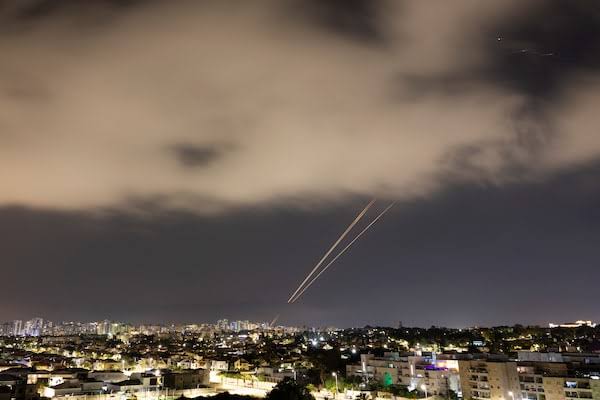Israel has vowed to respond to Iran’s unprecedented attack against the country, even after appeals for restraint poured in from world leaders fearing wider regional conflict.
Israeli armed forces chief Lieutenant General Herzi Halevi made the declaration while addressing troops at the Nevatim airbase, which was hit in Iran’s Saturday night barrage, on Monday.
During six months of war between Israel and Iran-backed militant group Hamas in Gaza, Iran’s proxies around the region have stepped up attacks on Israel and its allies, saying they are acting in support of Palestinians in Gaza.
Tensions were already high before Iran launched its first-ever assault on Israeli territory, firing hundreds of missiles and drones in retaliation for a deadly April 1 strike on the Iranian consulate in Damascus, the capital of Syria.
Iran: We warned Israel before attack
“This launch of so many (Iranian) missiles, cruise missiles, and UAVs into the territory of the State of Israel will be met with a response,” AFP quoted Halevi as saying.

The Israeli army has said the vast majority of the weapons were shot down – with the help of the United States and other allies – and the attack caused only minimal damage.
Western governments, including those that supported Israel in its defence, have warned against an escalation, and Prime Minister Benjamin Netanyahu met with his war cabinet on Monday night to discuss next steps.
Iran has previously said it would consider the matter “concluded” unless Israel retaliated, and Foreign Minister Hossein Amir-Abdollahian told his Chinese counterpart in a call on Tuesday that Iran was “willing to exercise restraint” and had no intention of further escalating tensions.
China’s top diplomat Wang Yi said it was “believed that Iran can handle the situation well and spare the region further turmoil”.
The United States has repeatedly appealed to China – a close partner of Iran and a top buyer of its U.S.-sanctioned oil – to use its influence over Tehran to manage tensions in the Middle East.
- Tribunal stops MultiChoice from increasing DStv, Gotv subscription prices - April 29, 2024
- Lagos residents groan as fuel scarcity bites hard - April 29, 2024
- Finidi George appointed Super Eagles coach - April 29, 2024










